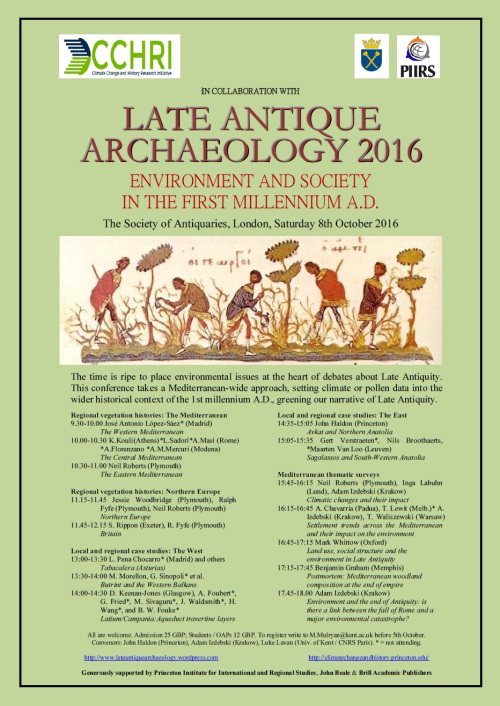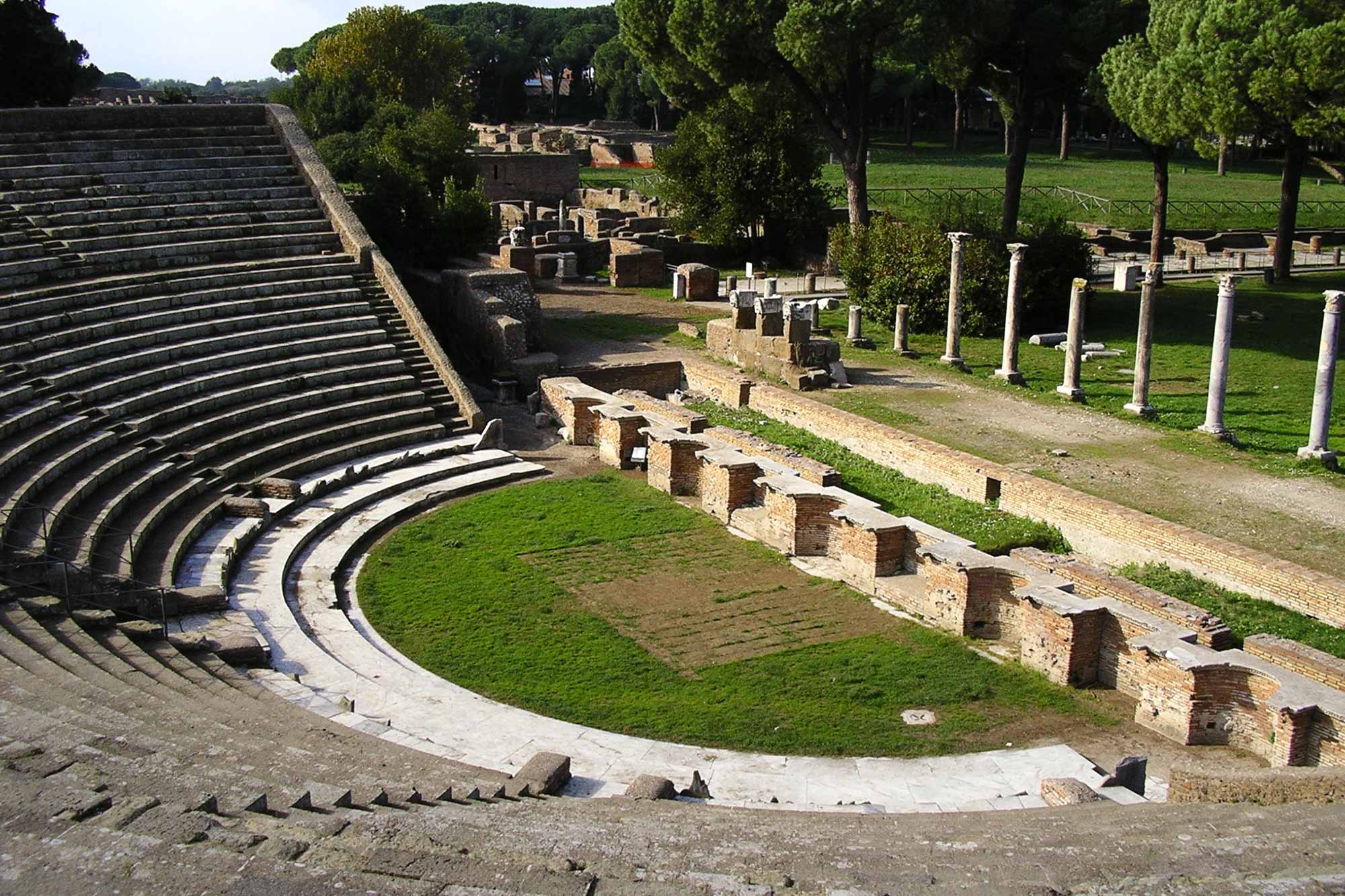The conference was held in conjunction with the Princeton Institute for International and Regional Studies, Climate Change and History Research Initiative and the Jagelonian University (Krakow) and took place at The Society of Antiquaries, London on Saturday 8 October 2016
Regional vegetation histories: The Mediterranean
9.30-10.00 José Antonio López-Sáez* (Madrid)
The Western Mediterranean
10.00-10.30 K. Kouli (Athens), *L. Sadori (Rome), *A. Masi (Rome), *A. M. Mercuri (Modena)
The Central Mediterranean
10.30-11.00 Neil Roberts (Plymouth)
The Eastern Mediterranean
Regional vegetation histories: Northern Europe
11.15-11.45 Jessie Woodbridge (Plymouth), Ralph Fyfe (Plymouth), Neil Roberts (Plymouth)
Northern Europe
11.45-12.15 S. Rippon (Exeter), R. Fyfe (Plymouth)
Britain
Local and regional case studies: The West
13:15-13:45 M. Morellon, G. Sinopoli* et al.
Butrint and the Western Balkans
13:45-14:15 Duncan Keenan-Jones (Glasgow)
Portus and Latium
Local and regional case studies: The East
14:15-14:45 John Haldon (Princeton)
Avkat and Northern Anatolia
14:45-15:15 Gert Verstraeten*, Nils Broothaerts, *Maarten Van Loo (Leuven)
Sagalassos and South-Western Anatolia
Mediterranean thematic surveys
15:30-16:00 Neil Roberts (Plymouth), Inga Labuhn (Lund), Adam Izdebski (Krakow)
Climatic changes and their impact
16:00-16:30 A. Chavarria (Padua), T. Lewit (Melb.)* A. Izdebski (Krakow), T. Waliszewski (Warsaw)
Settlement trends across the Mediterranean and their impact on the environment
16:00-17:00 Mark Whittow (Oxford)
Land use, social structure and the environment in Late Antiquity
17:10-17:40 Benjamin Graham (Memphis)
Postmortem: Mediterranean woodland composition at the end of empire
17.40-17.55 Adam Izdebski (Krakow)
Environment and the end of Antiquity, or is there a link between the fall of Rome
and a major environmental catastrophe?
18:00 Close
The time is ripe to place environmental issues at the heart of debates about Late Antiquity. Recently, a paper on the climate change during the age of Justinian, published in Nature, received coverage in all major American and European newspapers. This article is not an isolated case, yet mainstream late antique scholarship has not so far absorbed this work.
This conference will be a decisive step in making the late antique community aware of a whole range of environmental phenomena that affected Mediterranean and northern European societies at the end of Antiquity and the Early Middle Ages. We will adopt a Mediterranean-wide approach and look at the period of Late Antiquity from a broader chronological perspective, that of the 1st millennium A.D. This time frame is critical to interpreting climate and vegetation data, which are most meaningful in a long-term context.
The conference itself has two aims. Firstly, it will present the rich pollen and scientific data available for the study of the first millennium AD in different regions. Secondly, it will develop and reinforce the environmental perspective on Late Antiquity. The focus on the whole Mediterranean (with its hinterland in Northern Europe) will correct a bias towards the East seen in recent studies on the environmental history of Late Antiquity. The conference will interest not only scholars of the 4th to 7th c., but also early medievalists and students of earlier Graeco-Roman Antiquity.
This conference was generously supported by the Princeton Institute for International and Regional Studies, Mr John Beale, and Brill Academic Publishers.
Convener: Adam Izdebski, Jagiellonian University in Krakow

